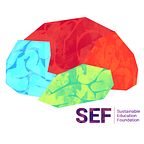Meet Sri Lankan Researcher — Udara Hasantha Piyathilake
What are you currently working on or worked on before?
Most of my research studies are relevant to Hydrogeochemistry, Water Quality Analysis, Soil Quality Analysis, Soil Erosion, and GIS-based Spatial Analysis. I am currently working on investigating geochemical factors that contribute to the prevalence of chronic kidney disease of uncertain aetiology (CKDu) in the Uva Province, Sri Lanka which is funded by the world bank.
Apart from that, I’m working on monitoring the chemical properties of topsoil and tea leaves in herbicides free integrated weed management system (HFIWMS) in Dambethenna Tea Estates, Sri Lanka which is funded by Rainforest Alliance, United Kingdom.
What encouraged you to pursue your research topic?
I am interested in research related to Hydrogeochemistry, Soil Science, and GIS-based Spatial Analysis. The research projects that I’m currently working on are under the fields of the above-mentioned study areas.
Also, In 1994, a CKD with uncommon characteristics had been first reported among middle-aged paddy farmers in the Padaviya area on the northeastern border of North Central Province (NCP) in Sri Lanka. This disease does not associate with the commonly known risk factors of CKD viz. diabetes, hypertension, high blood pressure, and glomerulonephritis whereas the exact aetiology of this disease has not been defined yet. Also, CKDu has become one of the most serious health problems in Sri Lanka and it is increasing at an alarming frequency today, especially in the dry zone of the country.
However, although many previous geochemical studies have been focused on finding the causative root factors affecting CKDu, the exact causative factors for CKDu in Uva Province, Sri Lanka is remaining unrecognized and it urgently needs to identify the root causes of CKDu in order to prevent and treat the disease and save vulnerable lives. This urged me to pursue this research topic.
What is the name of your current institute? (University name or research lab name)?
I’m currently attached to the Faculty of Graduate Studies, the Sabaragamuwa University of Sri Lanka and I’m in the final stage of completing my Master of Philosophy degree in Environmental Sciences.
Where do you find your best inspiration for your work?
I have been fortunate enough to learn and work with many of the experts in the Department of Natural Resources, Faculty of Applied Sciences, the Sabaragamuwa University of Sri Lanka, and the University of Peradeniya, Sri Lanka. I have been working under the supervision of Prof. S.K. Gunatilake, Dr. E.P.N. Udayakumara, and Dr. L.V. Ranaweera at the Faculty of Applied Sciences, Sabaragamuwa University. Their guidance and inspiration made a massive impact on my career as a researcher.
Can you share with us some of your publications?
Yes. You can find my publications here.
What’s one of your biggest personal achievements so far?
Through my persistent hard work, I was able to publish more than 20 publications including journal papers, review articles, conference papers, and abstracts starting in 2018. According to Researchgate, the research interest in my publications are higher than 95% of all Researchgate members who first published in 2018.
What lessons would you share with a budding researcher?
- Being more organized will allow you to do more research activities on a daily basis, achieve your research objectives more efficiently, and this ultimately leads you to be a successful researcher.
- Hard work is definitely more important than smart work because it is only through hard work that we can achieve our research objectives and publish our findings in impactful journals.
- Considering challenges as opportunities, using your networks, engaging in external projects, facilitating other colleagues, and collaborating are key points to enhance the knowledge of your research area.
What motivated you to be a researcher?
I completed my BSc (Hons) degree in Environmental Science and Natural Resources Management in 2017. During my undergraduate period, I got to know that Environmental scientists use their knowledge of the natural sciences to protect the natural environment. Also, they find new ways to conserve and improve the ways humans use natural resources. This mainly motivated me to become a researcher in the Environmental Science field. Apart from that, I had the desire to get intellectual joy and publish impactful research findings, and desire to be of service to the Earth and humanity.
In your opinion, what are the changes that the Sri Lankan education system needs to do, in order to meet the requirements of the international industry and academia?
As a young researcher who has been working in Sri Lanka, my opinion is that the currently available education system in Sri Lanka has many success stories and we have a well-organized education system. But Something I recognized in the Sri Lankan university system is that generally, they give priority more to holding exam-based assessments rather than giving practical experiences to students. If we can include more assignment-based evaluation criteria the outcome would be more meaningful and impactful. This would pave the way to producing more success stories in Sri Lankan academia.
